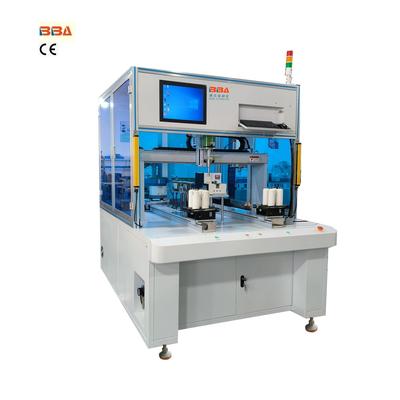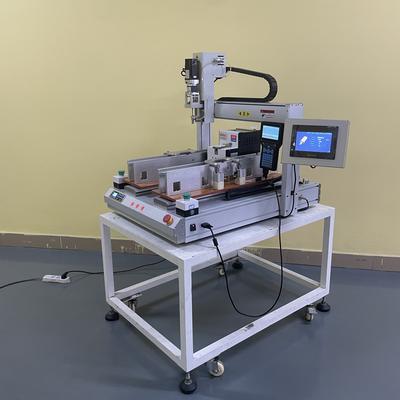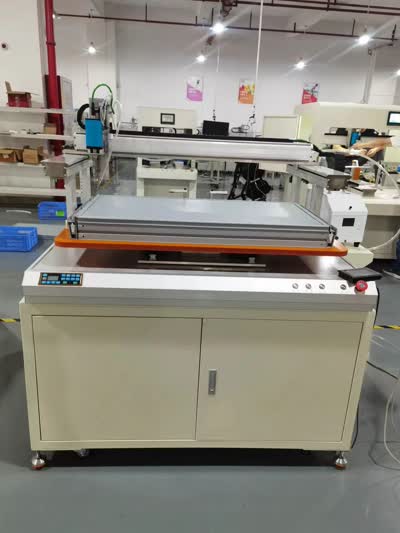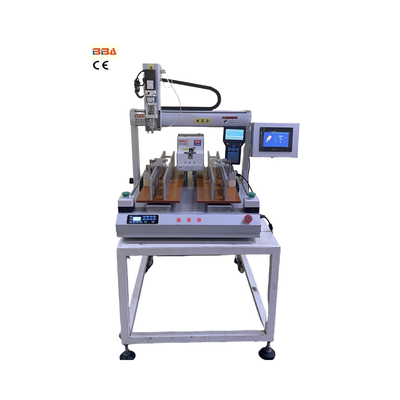Screw Assembly Solutions for Tech Manufacturers | Precision Automation
Blog Topics on Screw Assembly for Tech Manufacturers
In the high-stakes world of technology manufacturing, where precision and reliability are non-negotiable, the humble screw assembly process is often overlooked. Yet, it remains a foundational element in product integrity, performance, and longevity. For tech manufacturers, from consumer electronics to rugged industrial controllers, mastering screw fastening is not just about tightening a joint; it's about ensuring quality, automating for efficiency, and mitigating costly errors. This article explores critical topics and advancements in screw assembly technology that are directly relevant to modern manufacturing challenges.
The Critical Role of Precision Torque Control
Applying the correct torque is paramount. Under-torquing can lead to loose connections, causing electrical failures, excessive vibration, and premature product wear. Conversely, over-torquing can strip threads, damage sensitive components like PCBs, or induce stress fractures that lead to catastrophic failures in the field. Modern automated screwdriving systems equipped with precise servo technology and real-time torque monitoring are essential. These systems provide closed-loop feedback, ensuring every screw is fastened within a meticulously defined torque range, creating a verifiable record of quality for each unit produced.
Automating for Scalability and Consistency
Manual screw assembly is inherently variable, prone to human fatigue, and difficult to scale. For tech manufacturers facing high-volume orders, automation is the clear path forward. Robotic screwdriving cells, often integrated with sophisticated vision systems, can perform repetitive tasks with unwavering consistency. These systems can handle a wide variety of screw sizes and types, automatically feed drivers, and verify each installation. This not only dramatically increases throughput and reduces labor costs but also eliminates a significant source of production defects, enhancing overall product quality and reducing warranty claims.
Addressing Miniaturization with Micro-Fastening
The relentless trend towards smaller, more compact devices presents unique assembly challenges. Fastening tiny, sub-millimeter screws found in smartphones, wearables, and medical devices requires extraordinary precision. Specialized micro-fastening systems are necessary, featuring ultra-fine drivers, delicate feed mechanisms, and high-magnification vision guidance. These systems must operate in controlled environments to prevent contamination and manage static discharge, protecting sensitive microelectronics. Investing in the right micro-assembly technology is crucial for manufacturers pushing the boundaries of miniaturization.
Intelligent Data Tracking and Traceability
In today's connected industrial landscape, data is king. Intelligent screwdriving systems do more than just fasten; they collect and analyze data for every single screw tightened. This creates an unprecedented level of traceability. Manufacturers can track torque-angle curves, identify potential cross-threading events in real-time, and log complete assembly histories for each product. This data is invaluable for root cause analysis during quality audits, allowing teams to quickly pinpoint and rectify process deviations. It transforms assembly from a simple mechanical task into a data-rich, intelligent operation that supports continuous improvement and compliance with stringent industry standards.
Overcoming Common Production Challenges
Several persistent challenges can disrupt screw assembly lines. Screw cross-threading remains a primary culprit for defects and rework. Advanced systems now use optical sensors and force feedback to detect the initial misalignment that leads to cross-threading, stopping the process immediately to prevent damage. Head stripping is another issue, often caused by driver bit wear or misalignment. Automated systems can monitor bit condition and alert operators for scheduled changes before quality is affected. Proactively addressing these challenges with smart technology is key to maintaining a smooth and efficient production flow.
For technology manufacturers, optimizing the screw assembly process is a strategic imperative. It is a critical junction where quality, efficiency, and innovation converge. By embracing advanced automation, precision torque control, and data-driven intelligence, manufacturers can build more reliable products, reduce operational costs, and gain a significant competitive advantage in a rapidly evolving market. The future of assembly lies in smarter, more connected systems that ensure every screw, no matter how small, is perfectly placed.

| Product Name | Applicable industries |
| Smart Screw Driving Machine | Medical Device Manufacturing |


